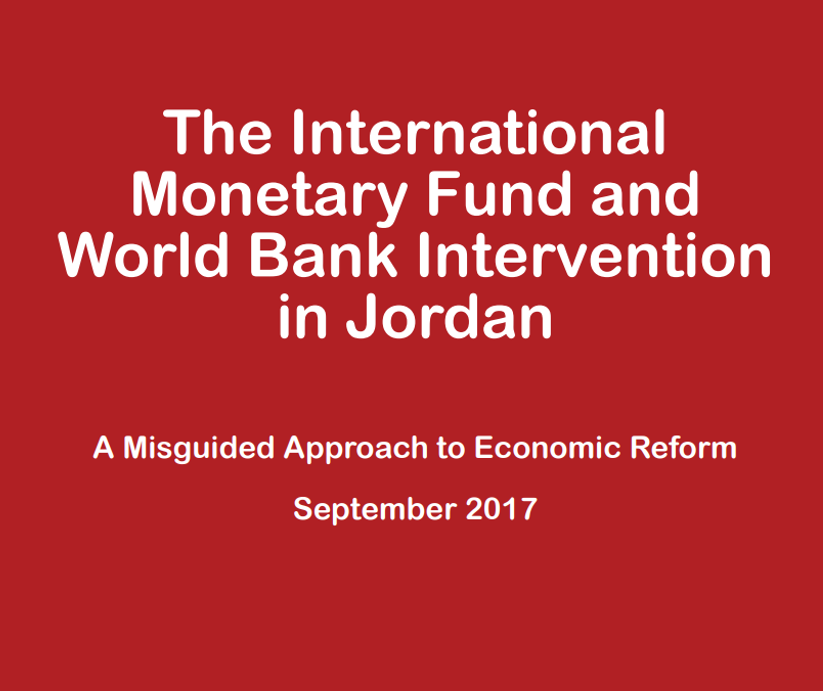
Ahmad Awad

The International Monetary Fund and World Bank Intervention in Jordan
Introduction
The Hashemite Kingdom of Jordan, a resourcestarved developing country that has withstood a series of socioeconomic shocks over the years, has come to rely heavily on foreign loans and assistance funds. Its strategic importance for the protection of the regional interests of its international partners, especially the United States of America, has been its main guarantee that such funds would continue
to flow, enabling the country to retain a modicum of political and socioeconomic stability in a troubled region. Yet, in spite of increasing levels of financial assistance it has benefited from over the years—
particularly over the past three decades—Jordan has failed to develop sustainably, meaning that it has been unable to build a progressively independent national economy capable of progressively releasing
the country from its financial dependence on its partners and international financial institutions (IFIs). In fact, the opposite has occurred.
Meanwhile, the living conditions in the country have hardly improved over the years, as poverty and unemployment rates have remained high, and citizens continue to be in need of a better protection of their socioeconomic human rights.
Historically, Jordan has relied heavily on the support of two main IFIs—the International Monetary Fund and the World Bank. Billions of
dollars in loans have been disbursed since Jordan first began receiving IMF assistance in 1989, allowing the country to cover its current expenditures, pursue developmental projects, and retain some
level of economic growth. However, these funds have come at a price. In return for much-needed financial assistance, Jordan has had to agree to a number of conditions—typically in the form of policy prescriptions—as part of its multilateral agreements. Through the implementation of successive structural adjustment programs (SAPs), the two IFIs have championed broad economic liberalization in the country, accompanied by the implementation of austerity-minded policies.
Click here to download the full report
This report is part of ANND policy briefs on IMF country reports 2017
Recent publications

